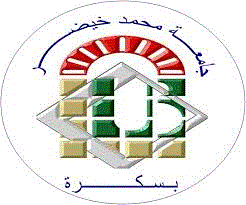| Titre : | An application serving the collection and digitalization of the waste management sector: aspect of the relationship with the inhabitant |
| Auteurs : | Moncef Taouririt, Auteur ; Abdelhamid Djeffal, Directeur de thèse |
| Type de document : | Monographie imprimée |
| Editeur : | Biskra [Algérie] : Faculté des Sciences Exactes et des Sciences de la Nature et de la Vie, Université Mohamed Khider, 2022 |
| Format : | 1 vol. (161 p.) / couv. ill. en coul / 30 cm |
| Langues: | Français |
| Mots-clés: | waste management, Digitalisation, circular economy. |
| Résumé : |
Waste collection and management problems in Algeria, especially in development, have become one of the intractable environmental problems facing urban centers. This situation can be attributed to the low level of technology that is not developed enough to deal with the high rate of waste generation. The digital revolution of society and economics has already established itself as a crucial development of the twenty-first century, touching every aspect of everyday life, the economy, policy, and so on. This applies to trash management, including waste prevention, as well as the broader concept of a circular economy. Digital technologies promise a more effective waste management regime, including safer, more transparent, more cost-effective, and resource-efficient operations, improved sourcing of valuable materials in waste streams, and a more effective link to other sectors in a future circular economy. In this working paper, we present a work that studies the waste collection operation in a city and proposes a digital solution that allows a more efficient management of the waste collection process. The application focuses on the aspect of the relationship with the inhabitant. |
| Sommaire : |
Contents Acknowledgements Abstract . Introduction 1 1 General information on digitalisation, waste management and waste prevention 4 1.1 Digitalisation 5 1.2 Waste Management and Waste Prevention 6 2 Understanding the landscape: Drivers and inhibitors of the digital evolution of waste management... 3 2.1 Drivers 11 2.2 Inhibitors 12 3 Digital technologies and their current use in waste management 14 3.1 Overview of digital technologies . 15 Robotics 16 Internet of things 18 Cloud-Computing 19 Artificial intelligence and neural networks 20 Data analytics 21 Distributed ledger 22 3.2 State of digitalisation in waste management 23 Communication . 24 Waste collection .. 25 Internal processes 26 3.3 Applications and case studies of digital technologies in waste management 28 4 Waste management in the era of digitalisationt 33 4.1 Digital technologies as catalysts for the advancement of the current Algerian waste management regim 38 • Improvement of waste collection and treatment of waste. 38 • Improvement of the recycling chain 40 4.2 External effects of digitalisation in the waste management sector 43 Environmental effects 43 Economic effects 45 • Effects on Companies 45 • Effects on business models 45 • Effects on productivity and the labor market 46 Social effects48 Anew role for workers. 48 Citizens & Consumers 49 4.3 A broader perspective: digitalization for the circular economy 50 Impulses from new European Strategies50 Using digital technologies to realisea circular economy 53 Linking the physical and virtual worlds 54 Towards Product-Service Systems 55 5 Biskra Nadifa application presentation : Design, Implementation and tests .57 5.1 Objectives 58 5.2 Citizen’s relation with the mobile application functionality58 5.3 Biskra Nadifa application design59 5.4 Biskra Nadifa application implementation 60 5.5 Biskra Nadifa application results and tests .62 6 General Conclusion.68 7 Key messages73 References.74 Abbreviations .81 |
Disponibilité (1)
| Cote | Support | Localisation | Statut |
|---|---|---|---|
| MINF/738 | Mémoire master | bibliothèque sciences exactes | Consultable |




